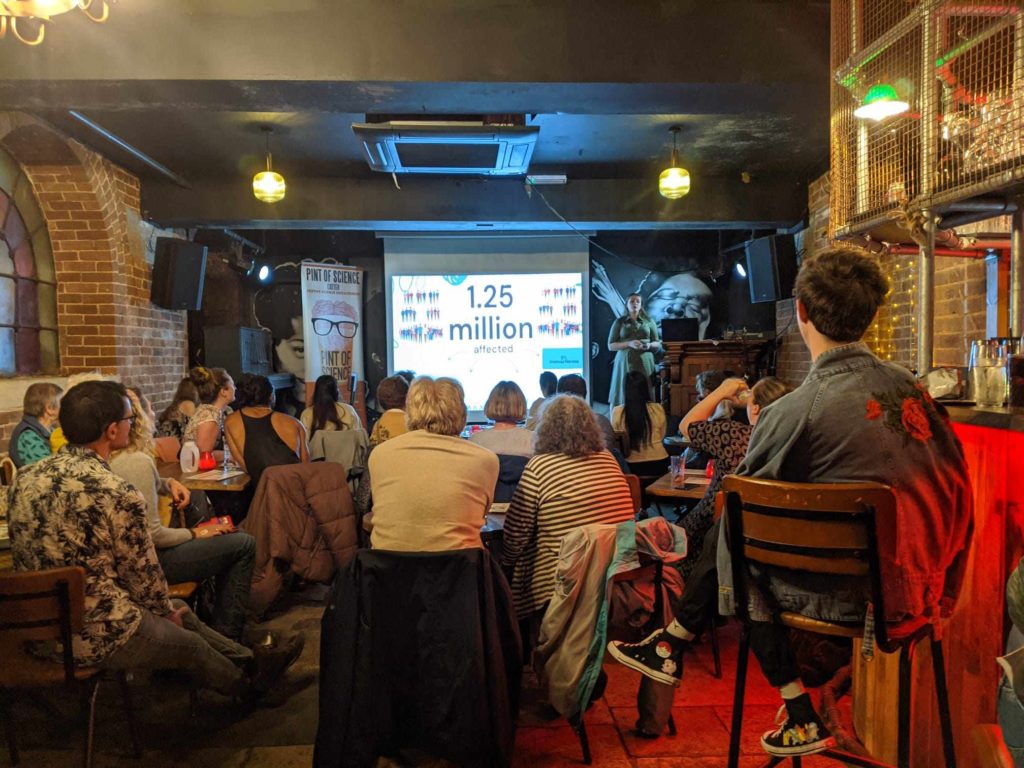Exeter Collaboration for Academic Primary Care (APEx) Blog
Exeter Collaboration for Academic Primary Care (APEx) Blog
Posted by ma403
14 June 2024I was invited to present at the Pint of Science festival in May 2024, which aims to bring scientific research to the public in an accessible and engaging manner across 3 days on different topics such as Our Body, Planet Earth or Tech Me Out. The night I spoke focused on MythBusters about the human body, which touched on different misconceptions about some physical and mental health issues. The evening comprised of 3 keynote speakers:
As the title suggests, my presentation focused on unravelling common misconceptions about binge eating disorder and bulimia nervosa and how these misconceptions can hinder one’s access to care. The presentation quizzed people on their current knowledge, attitudes and perceptions of these eating disorders and then aimed to bust the following myths about binge eating disorder and bulimia nervosa:
We then together explored the results of a qualitative systematic review that I have conducted as part of my PhD on the perceptions of healthcare professionals and patients on the identification and management of binge eating disorder and bulimia nervosa in primary care. I highlighted how knowing about the abovementioned myths could improve the identification and management of binge eating disorder and bulimia nervosa by interactively walking through “Bob’s journey” on getting a diagnosis and treatment for binge eating disorder or bulimia nervosa in the UK in primary care, whilst further incorporating the results of the review.
Participating in Pint of Science was challenging but a great experience with several learning outcomes to reflect on. It challenged my understanding and knowledge of my research topic. It pushed me to think creatively about it when disseminating results and putting them into a relatable and easy-to-understand context. The event also made me reflect on the importance of bringing science to the public and inviting the public to engage with science, which played a key role in my systematic review and will continue to influence my future steps in my PhD. I am very grateful for this opportunity and look forward to the next steps in disseminating my research to the public.
